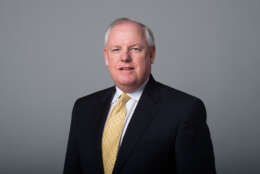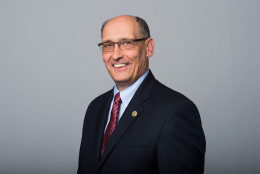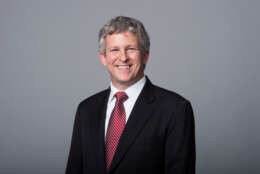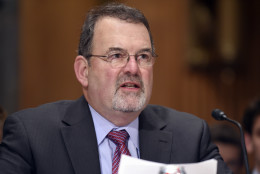Management
-
With the ToxCast Lab, EPA scientists had new tools at their disposal that allowed them to more efficiently and cost-effectively screen chemicals for potential toxic effects. It also helped to reduce the need for laboratory animal testing of chemicals.
June 30, 2015 -
As the deputy associate administrator in the General Services Administration’s Office of Citizen Services and Innovative Technologies, Conrad oversaw the development of key initiatives including the cloud security standard and Data.gov.
June 30, 2015 -
The FEMA Operation Precious Cargo Team was dispatched last summer to the South Texas border to coordinate the government's response to a massive humanitarian crisis.
June 30, 2015 -
DHS' Science and Technology Directorate worked with scientists at NASA-JPL to create FINDER, a portable piece of technology to help first responders.
June 30, 2015 -
As team leader for USAID's Syrian food assistance program, Rob Thayer has been instrumental to helping to bring life-saving help to the region, with the U.S. providing $1.1 billion in food assistance so far.
June 30, 2015 Ten years ago, the Environmental Protection Agency only knew whether a small fraction of the 80,000 chemicals in use were hazardous to people or the environment. That changed in 2005 after Robert Kavlock, deputy assistant administrator for science in the EPA's Office of Research and Development, established the ToxCast Lab. It can quickly screen large numbers of chemicals for health effects. For that, he was named one of the 33 finalists for this year's Service to America Medals. He joined Tom Temin on the Federal Drive to further discuss his work, and the problems it solved.
June 30, 2015-
Breaking news on Monday: NASA is getting a new deputy chief information officer. Sources say Renee Wynn is moving to the space agency after spending the last four years as the Environmental Protection Agency’s deputy…
June 30, 2015 -
The Defense Department and General Services Administration have an information sharing problem. They aren't sharing information about space that's available on military installations and about the agencies that could use it. Brian Lepore is director of defense capabilities and management issues at the GAO. He tells In Depth with Francis Rose how the two agencies can improve that collaboration.
June 29, 2015 -
Congress is at a standstill on the appropriations bills agencies need to fund their budgets. But the holdup is not just because both chambers are in recess this week. And it's not just because of a disagreement over the numbers. David Hawkings, senior editor of Roll Call, writes the Hawkings Here blog. He tells In Depth with Francis Rose what's going on in the budget debate and the debate over the National Defense Authorization Act.
June 29, 2015 -
Better Buying Power at the Pentagon is only one example of attempts to innovate in the acquisition space. The new acquisition corps that's set up like the U.S. Digital Services office is another one, but it's focused on policy and process. Michael Fischetti is executive director of the National Contract Management Association. He tells In Depth with Francis Rose that government spends too much time thinking about process -- and not enough about people.
June 29, 2015 -
Four major overhauls can turn massive data breaches from disasters to catalysts for change. Attracting talented cyber professionals and streamlining the IT cyber acquisition process are some of the key ingredients Richard Spires recommended to the Senate Appropriations subcommittee on Financial Services and General Government. He is the former chief information officer at the Department of Homeland Security and the Internal Revenue Service, and now CEO of Resilient Network Systems. He tells In Depth with Francis Rose that he sees systemic weaknesses in government IT security that need to be fixed now.
June 29, 2015 -
Jacob Moss, senior adviser at the Environmental Protection Agency, has been working with the State Department on a project to develop cleaner and more efficient stoves that can be distributed to millions of homes.
June 29, 2015 -
Personal experiences inspire Griffin P. Rodgers to become a doctor and develop lifesaving treatments.
June 29, 2015 -
Similar to the Office of Personnel Management, agencies are struggling to move off of previous generations of technology. Federal Chief Information Officer Tony Scott said the government is at a “critical inflection point” and needs to change its approach to buying and securing IT.
June 29, 2015










